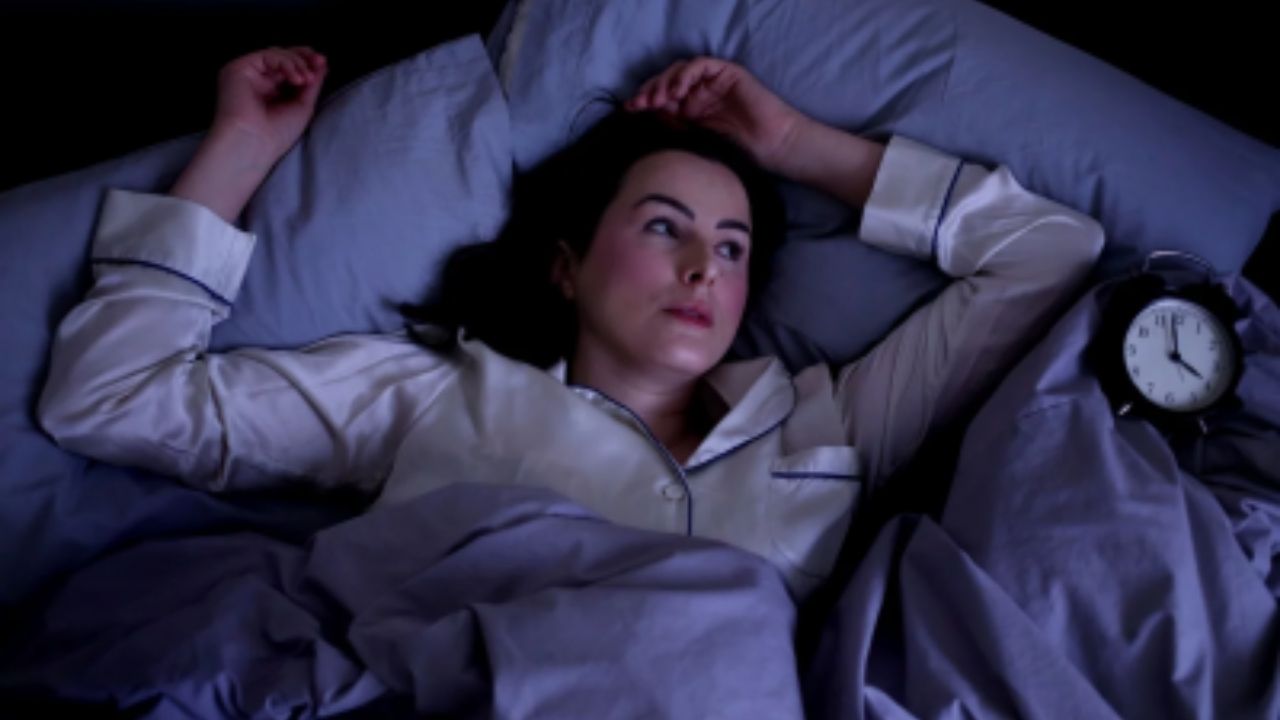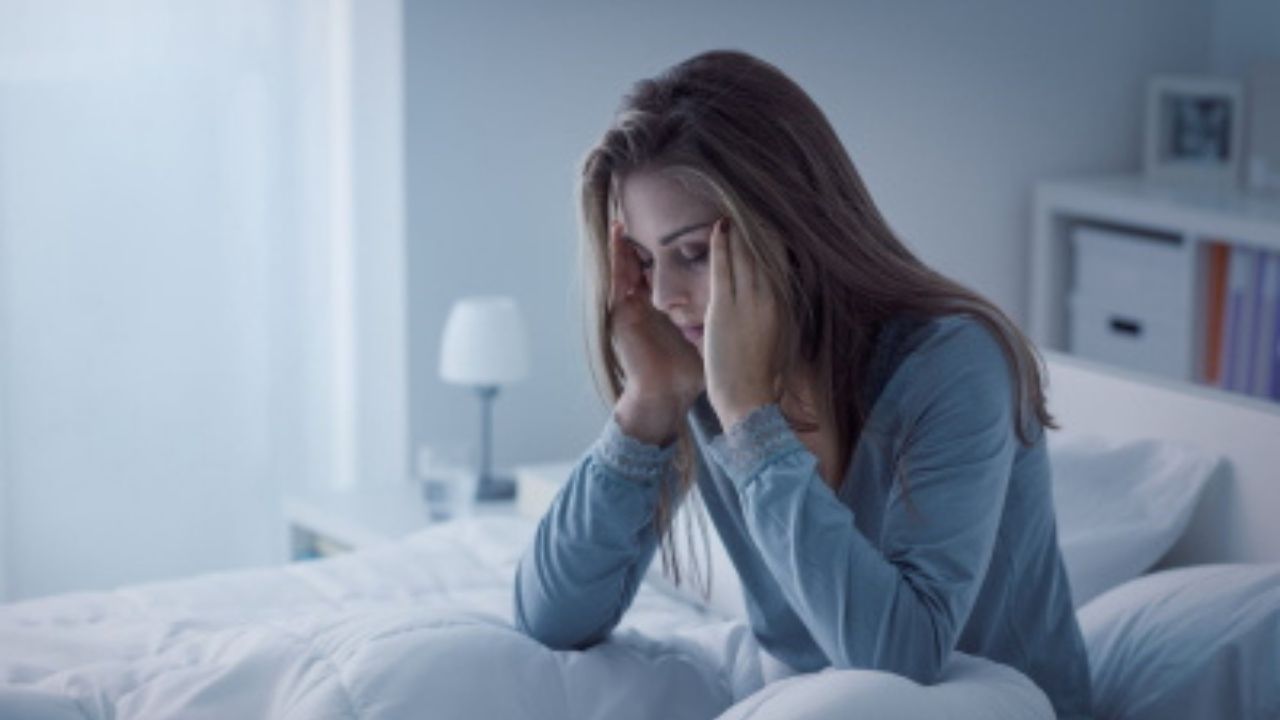Insomnia is the sleep disorder that consists of the inability or difficulty to sleep, in a way that causes fatigue and affects the daily life of people who suffer from it.
Insomnia (insomnia) is a pathological condition that manifests itself as a disorder of night sleep and accompanying daytime sleepiness. According to statistics, approximately 30% of adult men and 37% of women, as well as 3 out of 4 pregnant women, face this problem.

Chronic lack of sleep is often a trigger for a variety of diseases and conditions, from obesity to depression. With regularly recurring problems, the help of qualified specialists is needed, who will identify the cause of the pathology and find a way to quickly eliminate it.
Important information
Sleep is essential for the normal functioning of the body. At this time, the central nervous system processes the information received during the day, and most organs and systems rest after exercise.
On average, a person needs 6 to 10 hours of sleep every day, and it is during the night hours. Failure of the mechanism of falling asleep, frequent awakenings and a reduction in the total rest time leads to the development of fatigue, a decrease in attention and concentration.
It is believed that sleep disturbances occur due to a malfunction of the hormonal regulation of this process. In particular, they are associated with increased levels of cortisol and adrenocorticotropic hormones at night.
Symptoms of insomnia
The symptoms of insomnia are varied, but they are all associated with reduced sleep duration. The disease can manifest itself:
- Difficulty falling asleep: a person tosses and turns for a long time, looking for a comfortable position, etc.
- a single or multiple waking up during the night followed by a lack of sleep
- early awakening, due to which the total duration of sleep does not exceed 6.5 hours.

Types of insomnia
Depending on the course of the disease, the following types of insomnia are distinguished:
- transient: lasts no more than a week, more often occurs against the background of severe, but short-term stress, change of time zones, etc.
- acute: sleep disturbances last from 7 days to 1 month, also more often occurs against a background of stress or severe fatigue.
- chronic: lasts more than a month, may be associated with various somatic diseases, constant stress, chronic overwork, etc.
Another classification of insomnia is related to the cause of the problem. The following forms are distinguished:
- adaptive: occurs against a background of stress.
- psychophysiological: associated with a person’s fear of insomnia and is accompanied by an increase in anxiety before going to bed.
- idiopathic: appears for no apparent reason.
- behavioral: occurs in children, is associated with the formation of incorrect attitudes, for example, the habit of falling asleep only with a bottle, while riding in a stroller or with constant motion sickness.
- associated with poor sleep hygiene.
- associated with somatic pathology.
- arisen against the background of mental illness.
- medication: appears due to the intake of certain medications.
- pseudo-insomnia: a condition in which a person normally falls asleep and sleeps for a sufficient amount of time, but subjectively believes that he is not getting enough sleep.
Causes of insomnia
Insomnia occurs for various reasons. The most common are:
- severe stress and chronic overload of the nervous system.
- chronic pain of any localization.
- heart rhythm disturbances.
- hyperthyroidism (an increased amount of thyroid hormones in the blood).
- heartburn.
- significant physical fatigue.
- restless legs syndrome.
- hormonal changes in the body (puberty, pregnancy, menopause).
- mental disorders and diseases. depression, schizophrenia, ADHD, etc.
- taking certain medications (psychostimulants).
- drug addiction, alcoholism.
- abuse of coffee.
- sleep apnea (breathing disorders in the supine position against the background of overweight, deviated nasal septum and other reasons).
- periodic night shift work.
- abrupt change of time zones.
The most susceptible to insomnia are pregnant women, the elderly, and people suffering from excessive nervous excitability. In addition, the following diseases can provoke the development of insomnia:
- bronchial asthma.
- heart failure.
- hypertrophy of the prostate.
- hepatic or renal failure
- atherosclerosis.
- Parkinson’s disease and other pathologies.
When to see a doctor?
A constant state of uncomfortable and irregular sleep can entail the risk of developing chronic diseases, impaired immune function, obesity, chronic fatigue and overwork, mental disorders.
If you cannot cope with the problem on your own, you need to contact a neurologist or somnologist who specializes in sleep disorders.
Diagnosis of insomnia

Insomnia is diagnosed by a somnologist. First, he carefully interviews the patient to identify the main complaints. The physician is especially interested in information about the prevailing symptoms, their duration and frequency of occurrence. A screening examination is prescribed to identify possible causes of sleep disorders:
- general blood and urine tests.
- ENT doctor’s consultation.
- neurological examination.
- 24-hour ECG monitoring (Holter), etc. depending on the indications and symptoms.
A sleep diary is compiled without fail, in which, at the end of each day, it is indicated:
- medicines used.
- time of the last meal.
- drinking alcohol, coffee, tea, smoking.
- features of the sleep environment (noise, heat, stuffiness, etc.).
- bedtime.
- the quality of falling asleep.
- the number of night awakenings and their duration.
- wake-up time.
- feeling after waking up.
Every detail counts for a detailed sleep analysis. Technical moments (time of falling asleep, number of awakenings, etc.) can be recorded using outpatient actigraphy. The diagnostic method involves the use of a special device that detects movements. The diary is kept for at least a week and allows you to evaluate all the features of the patient’s sleep.
Treatment of insomnia
How insomnia is treated depends on the cause. If problems with sleep have arisen against the background of a somatic illness, it is necessary to eliminate it or reduce the severity of symptoms as much as possible.
To eliminate insomnia directly, medication and non-medication are used. Doctors have at their disposal a large number of drugs that affect one or another aspect of sleep. Most often used:
- sleeping pills: make it easier to fall asleep and reduce the risk of nighttime awakenings.
- tranquilizers: prescribed for concomitant anxiety.
- melatonin: a hormone produced by the body at night promotes the onset of sleep; the drug is especially relevant when changing time zones or the need to restore the normal rhythm of sleep and wakefulness after several night shifts.
Drugs in these groups should be used exclusively as directed by a doctor, since uncontrolled use can lead to addiction, and abrupt withdrawal can lead to serious insomnia. The exception is herbal preparations (motherwort, valerian, etc.), but they should not be abused either.
Psychotherapy works well for insomnia, especially if the problem is caused by acute or chronic stress. As a rule, cognitive-behavioral techniques are used. They help the patient:
- successfully deal with the influx of anxious thoughts.
- tune in to a positive perception of reality.
- independently eliminate the factors contributing to excessive anxiety.
- promptly seek help from relatives and doctors, as well as accept their help.
In some cases, sleep disturbances can be effectively treated with hypnosis.
Complications of insomnia
Most people don’t see insomnia as a serious problem. Meanwhile, chronic lack of sleep can trigger a complex of pathological changes that can provoke:
- a noticeable decrease in immunity: during sleep, the body restores strength and produces cytokines, which are one of the important components of the immune system; their lack leads to a decrease in resistance to colds and other infectious diseases.
- exacerbation of chronic diseases.
- development of pathology of the cardiovascular system: chronic lack of sleep leads to instability of blood pressure, changes in heart rate, increased risk of dangerous conditions.
- weight gain: in an effort to restore strength in a different way, a person begins to subconsciously reach for high-calorie carbohydrate foods, which leads to weight gain; in addition, lack of sleep provokes a decrease in the production of hormones responsible for the feeling of fullness.
- exhaustion of the nervous system: insufficient night rest reduces the ability to concentrate on any activity, the speed and quality of thinking suffers.
- depression, anxiety disorder: these conditions often form a vicious circle, further exacerbating the severity of insomnia.
- decreased sex drive: with a lack of strength, the body “turns off” the least important aspects of activity, which is expressed in the absence of libido, anorgasmia in women, impotence in men.
In addition, a sleepy person can get into a dangerous situation, harm himself and others while driving or working with mechanisms that require constant concentration.
Who is at risk?
The most common groups of patients who complain of insomnia are:
- people over the age of 60.
- knowledge workers and creative professionals.
- workers performing activities at night.
- people forced to frequently change time zones, climate and geographic location.
- persons with mental disorders and other chronic diseases.
Prevention of insomnia
Prevention of insomnia includes a set of measures aimed at making it easier to fall asleep. Sleep hygiene is essential for them to be effective:
- try to go to bed at the same time.
- exclude watching TV and using gadgets 30-60 minutes before bedtime.
- ventilate the bedroom well, provide fresh air.
- darken the room if necessary.
- take a walk in the fresh air an hour before bedtime; it is better to transfer full-fledged sports activities to the first half of the day, since they have an exciting effect.
- exclude heavy food in the evening, as well as minimize the use of coffee and strong tea in the afternoon.
- take a shower or a warm bath before going to bed, listen to relaxing music.
- minimize (or better exclude) smoking and drinking.
Additionally, the following will help to relax the body:
- aromatherapy: essential oils of lemon balm, chamomile, lavender, ylang-ylang have a calming effect; you can use an aroma lamp or add a few drops of oil to the bath water.
- massage: light foot massage, kneading the head and neck in the absence of contraindications will help relieve nervous tension that has accumulated during the day.
- herbal teas and decoctions: preparations with the addition of mint, lemon balm, chamomile, hops, valerian and other sedative herbs are taken in the form of an infusion or decoction half an hour before bedtime.
- meditation, yoga, breathing exercises: promote relaxation and get rid of unnecessary anxiety.